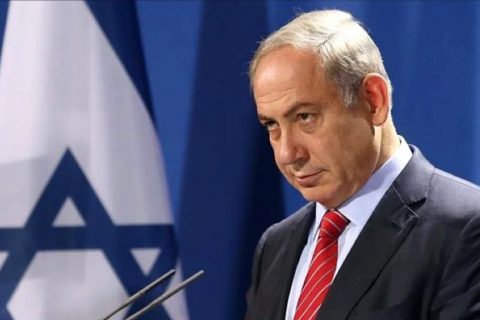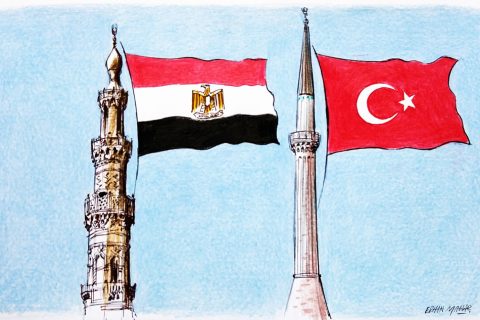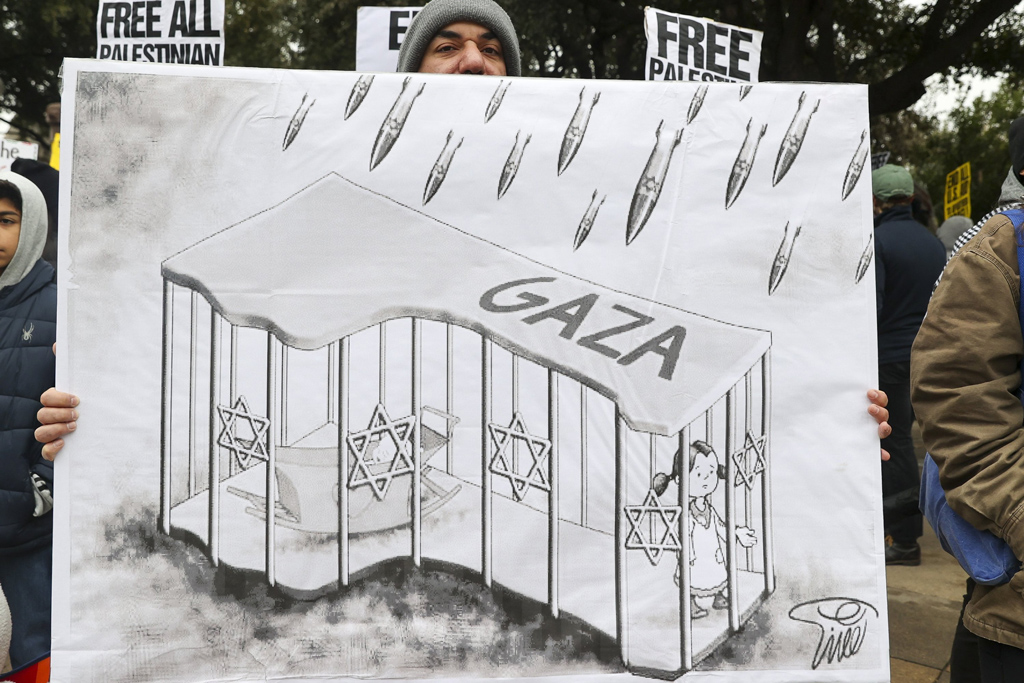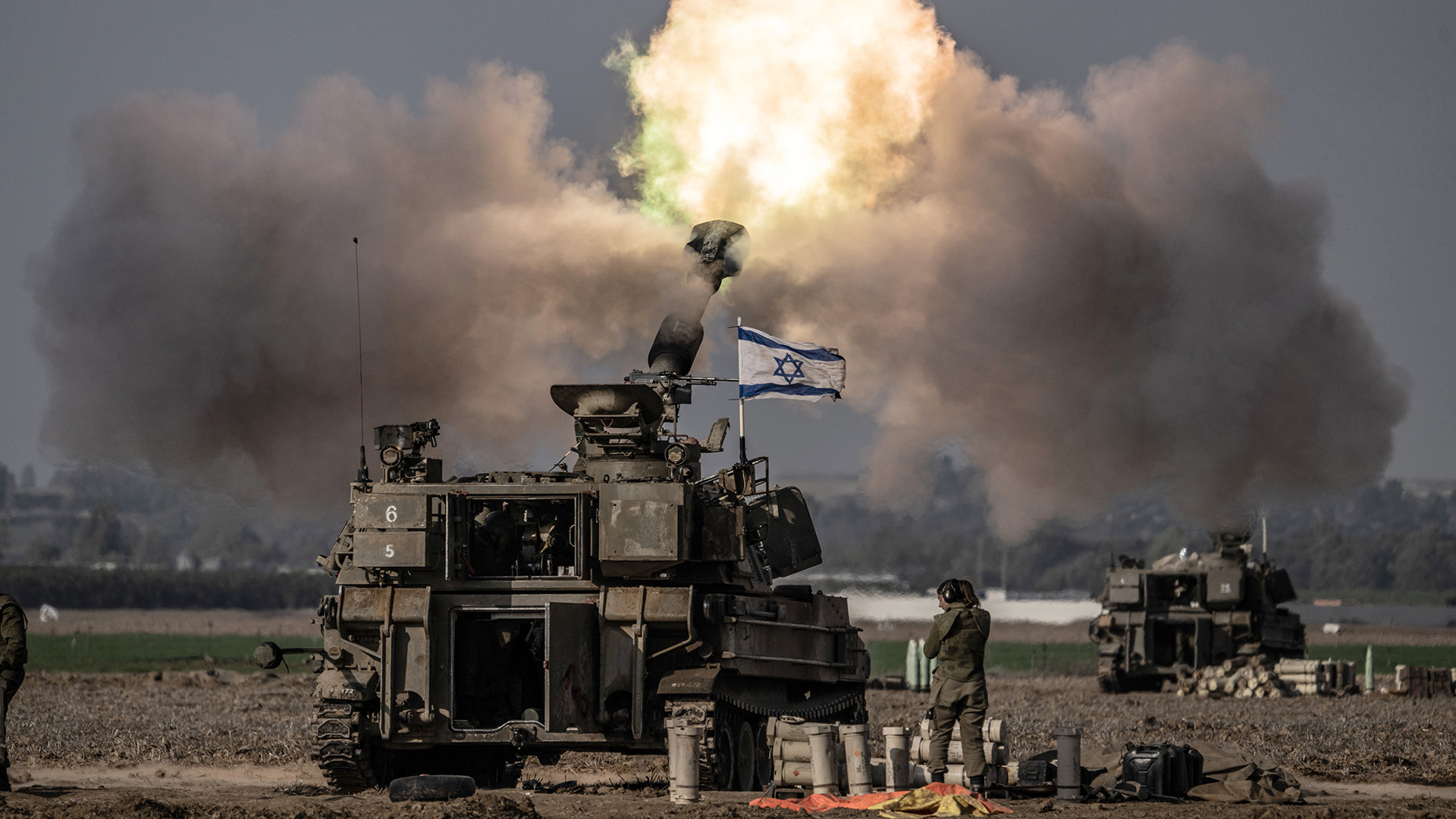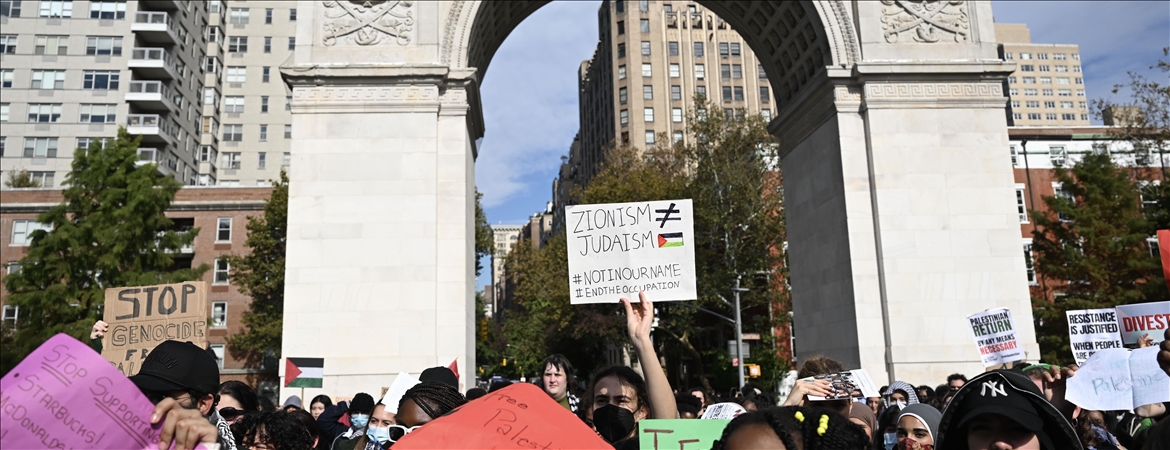United Nations (UN)
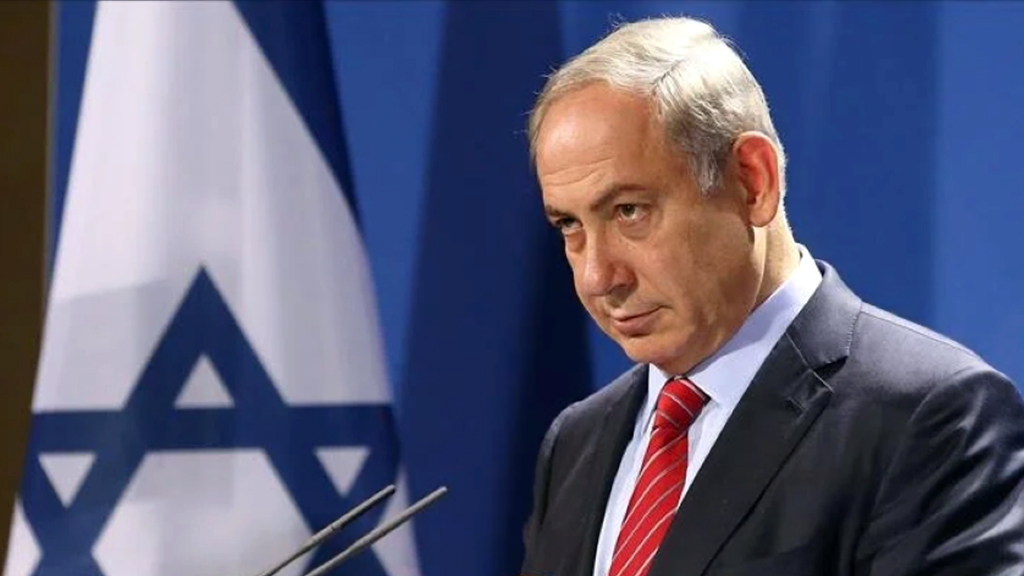
Netanyahu’s Iran card…
| OpinionIn response to Israel’s striking of Iran’s consulate in Syria, Ayatollah Khamenei’s statement of “retaliation …
-
Opinion
Netanyahu’s Iran card…
By Kadir ÜstünIn response to Israel's striking of Iran's consulate in Syria, Ayatollah Khamenei's statement of "retaliation will be given" has heightened the possibility of the regional proxy war escalating into direct conflict. Since October 7th, Netanyahu has been attempting to expand the conflict by targeting Hamas and Shia militia objectives in both Beirut and Syria. The relatively controlled continuation of the "regional war" relied on Iran and Hezbollah refraining from militarily supporting Hamas. However, Khamenei's remarks suggesting that striking the Iranian consulate would mean targeting Iranian soil have also put Washington on high alert.
-
Opinion
World at stake: Dynamics on second anniversary of Russia-Ukraine war
By Burhanettin DuranThe world was not in good shape on the second anniversary of the Russian-Ukrainian war. A quick look at the most recent developments alone would suffice to appreciate that we are entering a period of fragmentation and high risks.
-
Opinion
Türkiye’s diplomatic normalization efforts to yield key alliances
By Burhanettin DuranPresident Recep Tayyip Erdoğan's visit to Egypt marked the completion of yet another stage in Türkiye's normalization policy. The two countries thus agreed to brush aside their 12-year disagreement in an attempt to join forces anew. There is little sense in bringing up past statements to talk about concessions and U-turns.
Bu Konuda Daha Fazla
-
Trump, NATO, and American global leadership
By Kadir ÜstünThe remarks made by Trump, who is widely expected to run for president as the Republican Party candidate, regarding NATO once again underscored how fragile America's claim to global leadership is. Trump threatened to pressure certain NATO member countries to increase their military spending or face consequences. By stating that Russia could do whatever it wants with these countries, Trump escalated his anti-NATO rhetoric to new heights during his presidency. Trump's longstanding questioning of the concept of collective defense by the United States and his failure to protect a NATO member country practically spells the end of this military alliance. The loss of the deterrent effect of NATO's Article 5-based collective defense concept would not only undermine the alliance's guarantees but also signify the end of America's leadership within the Western alliance. As America engages in a global power struggle with Russia and China, it will become increasingly difficult for the country to conduct this struggle within the Western alliance without establishing unity.
-
Two-state solution in Palestine appears unfeasible
By Muhittin AtamanWhoever talks about the Palestinian-Israeli question from the United States to China and from the European Union to Russia claims that they support a two-state solution. The main reason for this claim is the two well-known United Nations Resolutions about the issue.
-
Aren’t we already in the midst of a regional...
By Kadir ÜstünWe're talking about the possibility of Israel's attacks on Gaza triggering a regional war after October 7. Recent developments actually indicate that we are already in the midst of a regional war. However, the fluctuating intensity of such conflicts and the fact that the parties involved are not always clearly defined make it difficult to label it as a regional war. The evolution of warfare between countries, occurring in complex ways across different arenas and activating the capacities of various parties, has made traditional, all-encompassing wars increasingly rare. Many countries now prefer proxy wars due to their lower cost, lower risk, and deniability.
-
Freedom of speech and the antisemitism debate in American...
By Kadir ÜstünWhile state universities in the American higher education system are obliged to adhere to constitutional provisions, private universities, like Harvard and MIT, aren't directly bound by the First Amendment, which safeguards freedom of speech. Private institutions can establish their rules and regulations, often attempting to extend freedom of expression in the name of academic freedom. However, they have, in the past, canceled programs and events deemed provocative or likely to incite disturbances, fostering a perception that such restrictions disproportionately favor conservative groups. Even on liberal campuses like Columbia, limitations and even bans on pro-Palestinian demonstrations have been observed.
-
Gaza protests in the US and freedom of expression
By Kadir ÜstünProtest movements against Israel's operations in Gaza have sparked a reexamination of the limits of freedom of expression in the United States. Efforts by pro-Israel groups to equate criticism of Israel with anti-Semitism have become organized and systematic. The campaign, conducted through advertisements in media outlets and lobbying activities in Congress, aimed to convey the message that crowds taking to the streets to defend Palestinian civilians were contributing to the rise of anti-Semitism. However, censorship applied by some of the world's leading universities to groups supporting Palestine, the fear of being labeled as anti-Semitic, and threats to withdraw support from influential donors demonstrated how the boundaries of academic freedom could be defined. The experience of a prominent figure losing their job or being marginalized due to their pro-Palestinian stance also illustrates how organized political forces can effectively use the trauma of anti-Semitism as a weapon.
